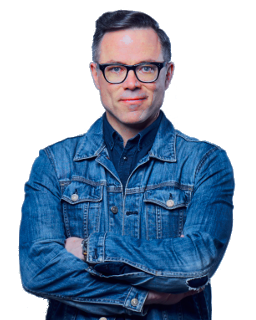Campaign countering vaccine misinformation receives new funding of $1.75 million
Helen Metella - 29 April 2021

A social media project that counters misinformation about COVID-19 and is guided by University of Alberta Faculty of Law’s Professor Timothy Caulfield has received additional federal funding to promote vaccination confidence.
ScienceUpFirst will receive $1.75 million of the $2.25 million investment announced on April 29 by federal Minister of Health Patty Hajdu through the Immunization Partnership Fund. The IPF supports projects that encourage vaccine acceptance and uptake.
"The spread of misinformation does real harm,” said Caulfield, Canada Research Chair in Health & Law Policy and research director of the Health Law Institute at the University of Alberta.
“It is having, for example, an adverse impact on vaccine uptake and on the adoption of preventative public health strategies. It is also fueling fears and polarized public discourse. With ScienceUpFirst, we are countering misinformation on social media with proven strategies: humour, creativity, empathy, and the best available scientific evidence."
ScienceUpFirst addresses misinformation in Canada by giving Canadians the tools to amplify science-based information about COVID-19 and vaccines. Drawing on a network of scientists, healthcare providers, and science communicators, this national initiative aims to debunk misinformation with credible COVID-19 facts, as well as reach vulnerable populations with culturally relevant and scientifically accurate COVID-19 information.
During National Immunization Awareness Week (April 24-30), its social media campaign features healthcare workers across Canada answering COVID-19 vaccine questions. Its hashtags are #ScienceUpFirst and #VaccinesWork.
ScienceUpFirst was created through a partnership of the Canadian Association of Science Centres, COVID-19 Resources Canada and the Health Law Institute.
ScienceUpFirst is one of two projects that the new funding will support. The other is the University of Toronto’s CARD System (C-Comfort , A-Ask, R-Relax, D-Distract), which addresses fear of needles among adults.